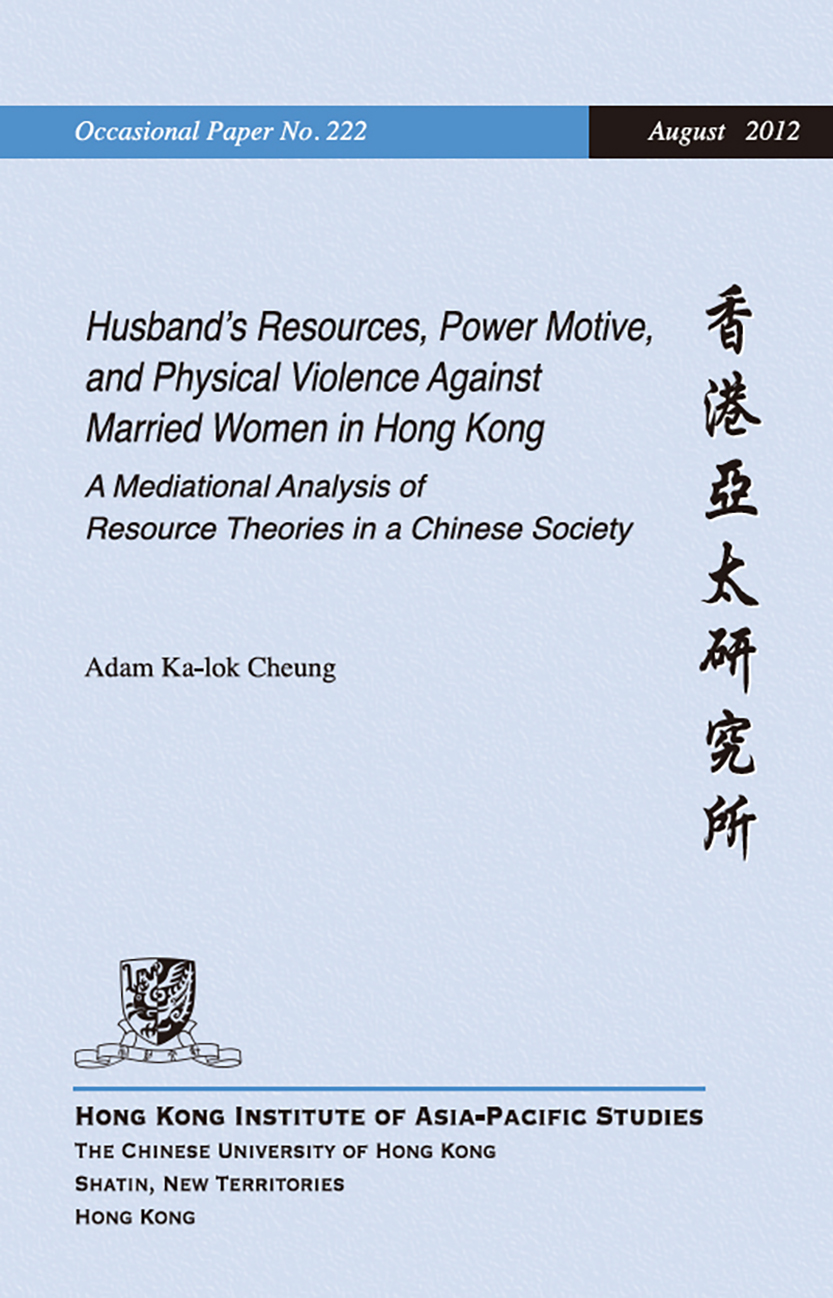HKIAPS Publications
By Adam Ka-lok CHEUNG
English/21.5 x 14 cm/paperback/ii+35 pages/published in August 2012
ISBN 978-962-441-222-2; list price: US$3.00 (HK$20.00)

Husband-to-wife violence is the most common form of gender-based violence and is much more prevalent than many other forms of interpersonal violence. Resource theories argue that men with few resources, or fewer resources than their wife, would have a stronger motive for desiring more power in the relationship. Therefore, they are more likely to perpetrate violence against their partner. However, the role of the power motive in connecting resources and domestic violence has seldom been empirically examined in a Chinese context. Using couple-level data from a household survey in Hong Kong (N = 871), the present study confirms that a couple’s income difference and the husband’s full-time employment status exert an indirect effect on husband-to-wife violence through the husband’s power motive. Practitioners should not solely emphasize on the role of stress and anger in causing family violence, but also consider the family as a micro-power system where violence may be instrumental in the relationship.
香港丈夫的資源、權力動機和虐妻行為:資源理論在華人社會中的應用和分析
丈夫向妻子使用暴力是常見的性別暴力形式。資源理論指出當男性擁有較少資源時,這些男性會比其他男性更希望在婚姻關係中取得更多話事權,因此這些男性向妻子施暴的機會較高。但是,過去華人社會的實證研究少有直接檢驗權力動機和家庭暴力的關係。本文分析一個在香港進行的住戶問卷調查數據(樣本數目為871),驗證了以上的理論假設。前線工作者除了需要瞭解壓力和憤怒對家暴的影響外,亦要明白到暴力在家庭作為一個權力系統下的工具性。
